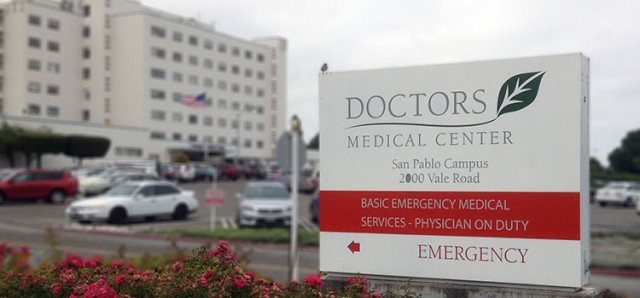An urgent care clinic in San Pablo is getting $2 million in state funds to expand service to the community affected by the recent closure of deficit-plagued Doctors Medical Center.
That grant -- secured with the aid of state Sen. Tony Thurmond, a Richmond Democrat -- will go to LifeLong Medical Care, which in addition to its San Pablo facility runs clinics throughout the East Bay.
Marty Lynch, LifeLong's executive director, says the new funding will go toward expanding the clinic's hours. The facility is open from noon to 8 p.m. seven days a week; closing time will likely be extended to midnight.
The clinic treats about 50 people a day for non-emergency health problems like asthma and minor infections. Lynch says one of the clinic's major challenges is educating those who depended on the Doctors Medical Center emergency room for such care that LifeLong can take care of them.
"If you have some problem that we can deal with -- you know, you're not having a heart attack -- much better to come to us than to wait four, five, eight hours in the emergency room," says Lynch.
